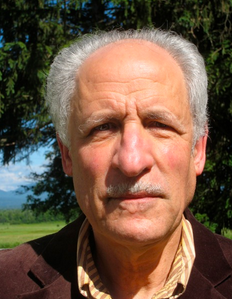On Thursday, 16 January 2016, Gallup headlined "Americans' Satisfaction With Economy Sours Most Since 2001," and reported that the percentage of Americans who say that they are "satisfied" with "the state of the nation's economy" is now (as of 5-8 January 2014) 28%, as compared with 68% during Gallup's previous survey, taken 10-14 January 2001. That 40% drop is almost twice the 21% drop in satisfaction shown on the second-most-steeply-falling of their 20 survey-questions, which was just a 21% drop in satisfaction with "the role the U.S. plays in world affairs." By contrast, the steepest rise in satisfaction registered on their 20 questions was on "the quality of the environment," which rose 23%, from 46%, to 69% satisfied with it now. The only really stunning outlier in their findings on all 20 questions was the 40% plunge in economic satisfaction, shown during that 15-year period.
Although economists claim that the post-2008 "recession" ended in June 2009, economists ignore who owns what, or the distribution of wealth, and so they don't care whether one person owns everything or whether the wealth is equally distributed (that's something that is measured by something called "Gini," and they don't include that when defining either "recession" or "boom"), and so they don't care about the fact that 95% of the income gains since the "recovery" started in June 2009 have gone to the richest 1% of the U.S. population.
Republicans especially don't care about the poor. For example, there was Romney's famous statement about the poorer 47%, whom he didn't concern himself about; but that's really just standard Republican thinking, not Romney individually; no surprise there; and, like economists' belief in the "invisible hand" of God, the view is based on admiration for the rich, and similarly contempt for the poor, attributing poverty to laziness, etc., and wealth to such virtues as wisdom.
However, remarkably, more Republicans than Democrats are currently dissatisfied with the economy: Gallup's new report shows that whereas 56% of Democrats are satisfied with it, only 31% of Republicans are. Democrats are more satisfied with it because they are prejudiced to like the present President, since he's a "Democrat." Similarly, Republicans are less satisfied with it because they are prejudiced to dislike him, since he's both a "Democrat" and a "Black" -- a combination that holds little appeal to the conservative, White, Republican, electorate.
When Gallup reported in 2001 their earlier findings, they provided no breakdown by Party, but did show that 68% of the public were satisfied, and only 27% were dissatisfied then, with the economy. Since this survey was taken at the end of the Bill Clinton boom and more than two months after a Republican (George W. Bush) had been elected to become the new President, and Clinton was both White and a Southerner, both of which attributes held appeal to Republicans, the optimism then was evidently shared by both Democrats and Republicans. What we have now is instead optimism only by Democrats, as if they constituted the richest 1% -- the people who are benefiting. Other than Democrats, and the richest 1% (who are overwhelmingly, by about 70%, Republicans), Americans evidently think that the U.S. recession is still continuing, even six years after Barack Obama became President.
In any case, whereas economists say that the "recession" ended in June 2009, the American public disagrees overwhelmingly with that assessment of the U.S. economy; so, either economists are using false measures of "recession," or else the American public are wrong to be dissatisfied with the state of the U.S. economy. Maybe all economists should be fired unless they collectively proclaim their formulas to be false, and propose replacements for those false formulas that are empirically supportable -- because the present ones clearly are not. Economics isn't yet a science: it's not yet a field where the reigning theories are based upon the existing empirical evidence, but instead upon prejudices (the "invisible hand" of God, etc.), much like popular opinion also apparently is.
But if someone stomps on your toe, and you say "Ouch!" and some "expert" tells you that it's all in your head, you know that the "expert" isn't one. That's the way it now is, regarding the U.S. economy.
----------
Investigative historian Eric Zuesse is the author, most recently, of They're Not Even Close: The Democratic vs. Republican Economic Records, 1910-2010 , and of CHRIST'S VENTRILOQUISTS: The Event that Created Christianity .




